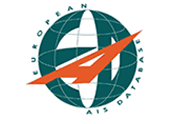
 | |
| [ APAC | AVITECH | EUROCONTROL | FREQUENTIS | ISO | MEKON | NEDGRAPHICS | SOLITEC ] |

Within the European Civil Aviation Conference (ECAC) there are some 38 contracting states each of which, in accordance with Article 28 of the Convention on International Civil Aviation (Chicago Convention) and Annex 15 to this Convention, has responsibility for providing an Aeronautical Information Service (AIS). The formal provision of these services is performed by civil and military, state-owned or privatised Air Navigation Service Provider (ANSP) organisations. Independent of the nature of these organisations, each State remains responsible for the information/data published for and on behalf of itself.
AISs are required to ensure the flow of aeronautical information/data necessary for the safety, regularity and efficiency of international air navigation within the area of responsibility of a State. The ANSPs, airspace users, as well as those commercial organisations serving both ANSPs and airspace users depend on the accuracy and timeliness of such data for safe route management, flight planning, and flight operations.
The current operational structure has several limitations and drawbacks when seen from a European perspective. Incoherence of cross-border aeronautical information, inconsistent quality of data throughout the ECAC area, lack of interoperability between systems due to different data models and exchange formats, and failures in ensuring timely distribution of aeronautical information updates to all stakeholders may possibly compromise the safety and/or efficiency of air navigation. Last, but not least, the duplicated processes and investments of the current operational structure cause high maintenance (costs) for all those involved.
The cost effectiveness of AIS operations, the quality of aeronautical data and the accessibility and availability of such data can be significantly improved through automation and centralisation. This was the rationale for the development of a European AIS Database (EAD) system and a centralised EAD service: enhance operational safety of air navigation by ensuring the quality of aeronautical information and by facilitating its timely and efficient (electronic) distribution.
The EAD will indeed offer a substantial improvement on current facilities and processes for the acquisition, validation, and timely distribution of aeronautical information within the ECAC area. On the one hand, it will support and facilitate ANSP in the maintenance and publication of validated (thorough consistency and coherence checks) aeronautical information. On the other hand, the EAD will provide a centralised facility supporting the exchange of such information amongst ANSPs as well as the timely distribution of and access to the information by the airspace users community and by other interested parties.
The primary beneficiary of the EAD will be the ANSP organisations and the airspace users community from the ECAC member states. The EAD will also be used by airlines that are based outside the ECAC area and by commercial organisations that use the aeronautical information to provide value added services and products. Implementation of the EAD will introduce automation and centralisation in the provision, processing, and distribution of aeronautical information. This will call for a redesign of the current operational structure. The identification and removal of redundant processes and of dispersed investments by the involved stakeholders will result in significant technical and financial benefits to all of them.
In November 1998, the Provisional Council endorsed the creation of the EAD, approving the remit of the EAD Programme and its related organisation. Following approval by the Provisional Council in April 1999, the EUROCONTROL Agency entered into a contract for the implementation of the EAD system in July 1999, which is planned to be delivered to EUROCONTROL by March 2003. Having regard to the progress of the EAD Programme, the Provisional Council adopted draft decision No. 83 at its 8th session in July 2000 and submitted it to the Permanent Commission. On 13 July 2000, the Permanent Commission took and endorsed this decision and thereby entrusted the EUROCONTROL Organisation with the development, establishment and operation of an EAD.
Concurrently, the EUROCONTROL Organisation has sped up the elaboration and implementation of a new strategy to separate structurally its regulatory functions from its activities of support for and provision of services. This new dimension was taken into account for the EAD Programme and, consequently, the setting-up of the operation of the EAD, i.e. the (EAD) Service. Although the Service will remain a EUROCONTROL service, its practical provision will be performed by an external organisation, under contract with and on behalf of EUROCONTROL. In the wake of this, a 5-year contract was entered into with GroupEAD Europe S.L. (hereafter referred to as the SPC, i.e. the Service Provider Company) for the development of the Service and its subsequent provision in July 2001.
The scope of the EAD Programme covers all activities related to the development and establishment of the EAD system and service, thus including the management of the contracted System implementation, the migration of the first set of users, and the follow-up of the externalised development of the Service. The end of all these activities is planned for mid-2004, at which time the EAD Programme will terminate.
The Agency now has to organise and institute a service responsible for the operation of the EAD, i.e. provision of the Service in compliance with a specific regulatory framework, continuous evolution and innovation of the EAD, and management of the EAD clients. Between mid-2003 and mid-2004, the EAD Programme will be phased out and the service will take over all pending and future activities related to EAD.

